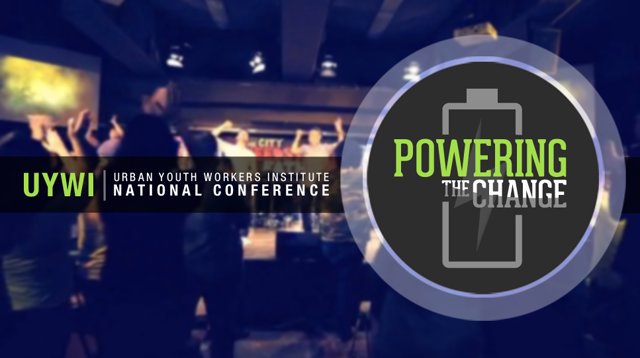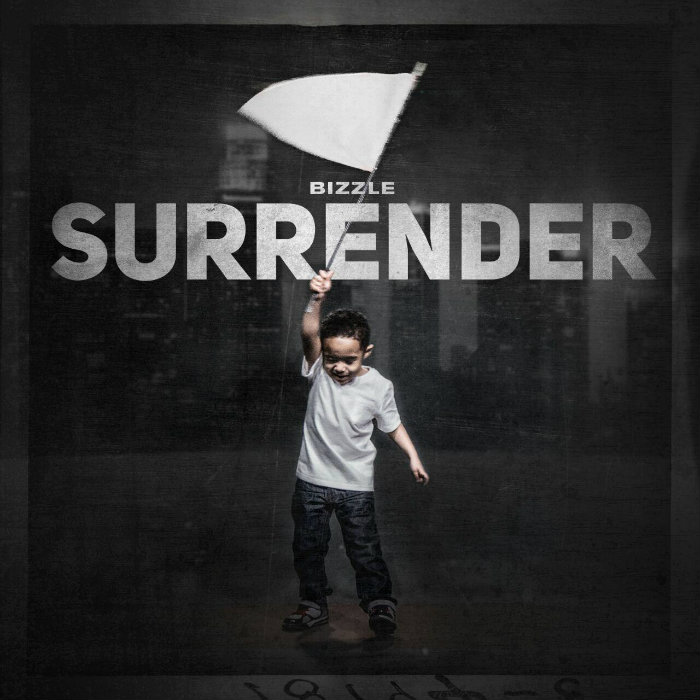There has been a lot of dialogue in recent months and years about the #CHH industry, with a lot centered around the careers and success of leading industry figures like Lecrae, NF, Andy Mineo, KB, and others. This article is being written from a promoter’s perspective with a primary focus on the audience growth, that impacts concert attendance, or lack thereof from Lecrae and NF. This article talks about lessons learned for up & coming Christian rap artists, CHH artists, hip hop artists who are devout Christians, etc. and this article will use one of these terms periodically to cover all of these category of artists.
I am Dante Crockett and I am the principal owner of Fearless Entertainment which has promoted more than 40 CHH, spoken word, and gospel music events since 2010. These events have ranged from 3K+ attendees for a Reach Records tour to a couple of hundred at a filled-to-capacity mainstream venue for a Christon Gray show and everything in between. I also produce an online radio show with smartphone apps and on podcast with regular appearances in the top 50 to 100 for all music podcasts in iTunes. Fearless Entertainment has put in many hours and invested much funds into promoting events over the years and wants to see growth in this music scene. I enjoy different kinds of music and I believe that Christians artists are not required to make explicitly gospel music but are required to make music that doesn’t dishonor God. This editorial hopes to add some nuance to the conversations that have taken place with the ultimate goal of encouraging the artist community to maximize their audience for their message and keep the influence of this music as high as possible.
This is part 3 of a 3-part series. We recommend that you read each part in full to develop a full perspective. As with anything, not all lessons apply to all people but let’s please learn from one another as there is wisdom on things to do and things not to do from observing others.
Lessons learned from previous articles:
1) Don’t run from the Christian artist label. You don’t have to claim it but you can unnecessarily alienate supporters by rejecting it in a way that can be perceived by your supporters as being ashamed being associated with Christians.
2) Open support of mainstream artists with profane lyrics will limit support from those who otherwise see your music as a solution to the problem of profane rap music that does not honor God. It is confusing for some fans to have an artist providing you a God-honoring solution endorsing what the fan sees as a problem.
Lessons Learned #3
3) Politics, racial issues, social justice can be minefields. If you choose to discuss these in your music and/or your social media, try to find a unique perspective that can move the needle on the issue with your supporters and not regurgitate popular partisan viewpoints. Understand where your audience is on the issue(not where you believe they should be), understand the potential reactions, and be prepared for it. Many CHH artists are particular in not offending fans or potential fans whose sin or vices are typical in the hip hop community. You can be careful also in how your address fans or potential fans whose sin, vice or weaknesses are racism or racial insensitivity.
Race, Politics & Social Justice
Billy Graham was arguably the pre-eminent preacher in US history in terms of length of his ministry, influence with governmental leaders of both parties, and consistency in focus on the Cross in his major stadium crusades. He was the 1st religious leader in US history to lie in honor at the US Capitol. Lecrae was uniquely featured in a national TV special celebrating Billy Graham’s 95th birthday giving his testimony with Tell The World playing in the background. 4 years later Lecrae has shared in multiple interviews how he has lost the support of the White evangelical community and it affected his record sales(60%+ 1st week sales drop from Anomaly to All Things Work Together) and concert attendance(as high as 90% concert attendance drop in some cities).
In multiple interviews, Lecrae has mentioned how the pushback from this community that had supported him even caused him to doubt his faith for a period of time. This overall result is a tragedy.
The issues of race, police brutality, social justice are complex and nuanced and not a matter of pure right or wrong in some instances. Looking at the Department of Justice report on the Michael Brown shooting, the assessment was that the killing of Michael Brown wasn’t a prosecutable violation AND that the Ferguson police department needed significant reform to address racial issues the community had complained about. A similar DOJ investigation ended up in the convictions of police offers who beat Rodney King in the 1990’s when they were acquitted in a local trial. When Lecrae expressed his concern with this shooting, many of his supporters lacked empathy about the conditions in a town like Ferguson that needed police reform. These conditions contributed to Lecrae identifying with the Michael Brown killing as a tragedy beyond a justifiable shooting. Lecrae also let his commentary have a similar tone as mainstream activists who don’t acknowledge fully the nuance in these racial and social justice issues . This point of view doesn’t give full credence to the DOJ under Attorney General Eric Holder and the Obama administration not prosecuting the case because of the evidence.
To the point of this article, looking at this issue is more about understanding where your audience is and not where they should be and trying to engage them to move the needle and not losing them. It is easier for an artist to manage how he communicates his point of view and how it can impact thousands or millions of followers than it is for thousands or millions of followers to change their perceptions and their collective point of view on an artist.
If your fanbase is primarily African-American, don’t be surprised if you lose audience support if you supported some initiative or event from a local Republican. As an artist, if you care about remaining engaged with supporters who may be insensitive to racial issues or maybe even racist, use wisdom on addressing issues of race in way that challenges your audience but doesn’t regurgitate mainstream media’s polarized viewpoints. This is difficult but possible. Most CHH artists want their music to reach and inspire people who may sell drugs, pop pills, sleep around, etc. Some CHH artists want to perform at mainstream events where the crowd environment also includes prevalence of sexual assault(Look up “Coachella sexual assault”). Many do things in their music to try to make their music relatable to a non-Christian audience. The White evangelicals who are insensitive to racial issues or maybe even racist also need deliverance and inspiration for their issues and the artists who can address those issues in a God-honoring way, challenging their social norms, honestly representing their point of view and not stereotyping them, not taking on the hip hop culture’s f— you/good riddance mentality, wrestling with pushback, etc. has a chance to do something new, unique, and special to help Christians model improved race relations in the US. It will be difficult but it is possible.
In this situation, Lecrae was unique of almost any music or activist-related individual who had the trust of the White evangelical community in a way that had a chance to effect change in how that community sees race issues. I wish Lecrae’s approach had been less similar to the social media soundbytes of mainstream rappers/social activists and more similar to someone like Ben Watson on addressing the issues like Ferguson.
Lessons learned – As an artist, understand your audience and don’t be surprised at their response based on how you address emotionally and/or politically charged issues in today’s climate. This isn’t a matter of right and wrong and this issue isn’t unique to Christian artists. If you decide to address a controversial topic to your fanbase whether through music or social media, even if the topic shouldn’t be controversial, understand it could affect your influence with them and your career.
From his interviews and commentary on the topic, Lecrae seems at peace with his current audience and growth potential. This editorial is written from a promoter’s perspective wishing that Lecrae’s audience had not been lost and that he still had the trust of the “White evangelical audience.” I wouldn’t be surprised that Lecrae
becomes effective amongst other activists and mainstream artists in his activism but he was unique from all of them in his access and trust with foremost preacher of the gospel in US history and from this outsider’s perspective, that was a lost unique opportunity that we hope somehow gets restored for the good of the reach of his and others music and for the betterment of racial relations within the wider Christian & gospel community.
Summary
Lecrae makes great Grammy-worthy music consistently. All Things Work Together is a great album musically and his concert tour was very well-done. Very few artists can deliver project after project and concert after concert at the highest-level of quality over the length of time Lecrae has done. He in many ways is an icon, albeit still underrated, musically given his career longevity and extremely deep catalog of great music. If he gets the radio airplay he has deserved for years, his audience will grow as his music is just very good. Beyond his own music Lecrae has helped introduce or widen the platform of many other artists like Trip Lee, Andy Mineo, KB, Derek Minor, Gawvi amongst others who have provided great music for many years now. Through Reach Ministries and other partnerships as described during his recent concert run, Lecrae actively supports philanthropic missions worldwide.
Lecrae is an owner of his label. His combination of artistry, audience growth in the past, and eye for talent with other Reach artists kept the CHH concert scene viable for years. He “raised the tide” in the industry and helped set a standard of Godly excellence that has reached millions. From a fan and promoter perspective, it is a tragedy in some ways that his great work in music and the issues we’ve discussed in this editorial overshadow his philanthropy.
Having attended his ATWT concert and listened to his interviews, Lecrae seems content with here his music is, with his point of view of social justice and activism, and with the opportunity he has for audience growth in the future. I believe that his music career and audience can still grow. I also believe our entire community can learn lessons from he and other artists so the next generation of artists are more considerate of (1) managing the Christian artist label (2) managing support of the explicit music of mainstream artists (3) managing the minefield of politics, racism, and social justice in a unique way that challenges your followers who have a different viewpoint than in a way that doesn’t push them away similar to how you are particular in not offending on some of the vices/sins of your hip hop audience.
Read the previous articles:
Read Part 2
Read Part 1





